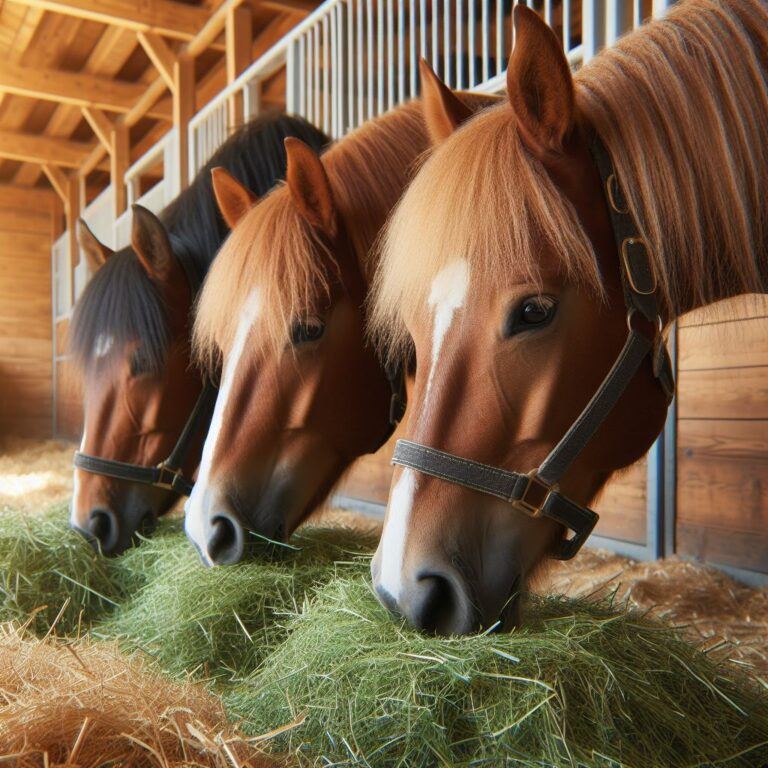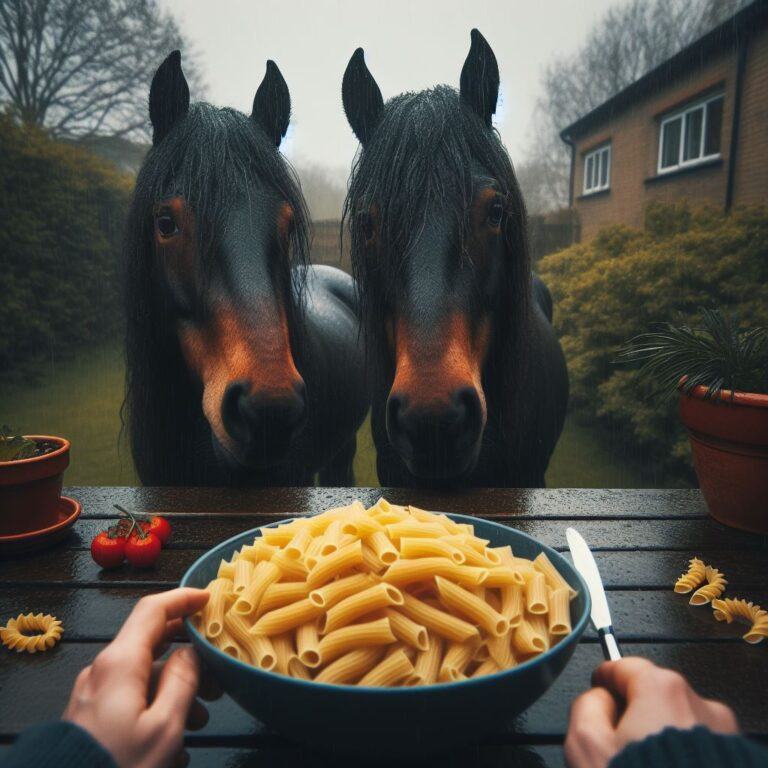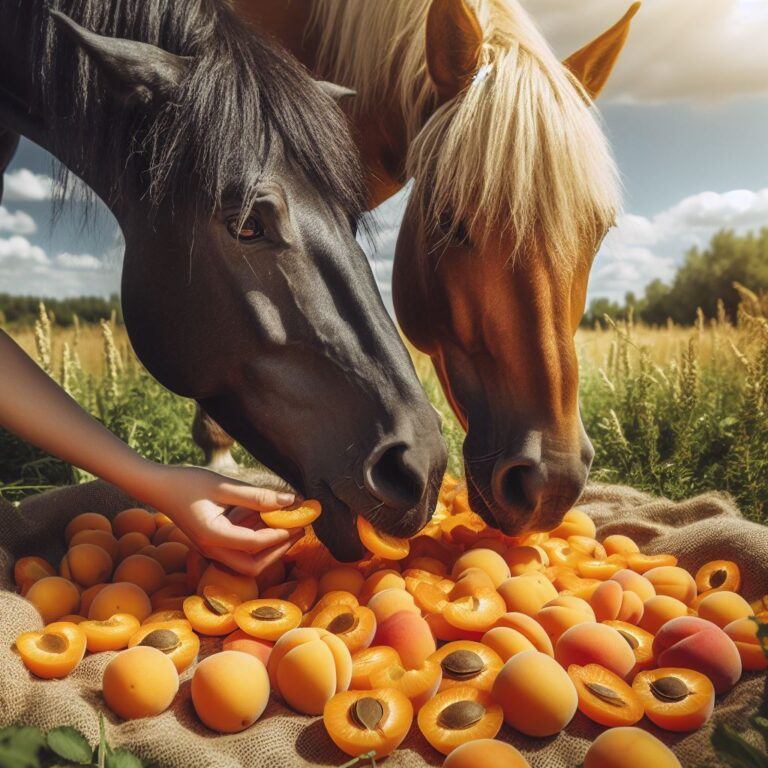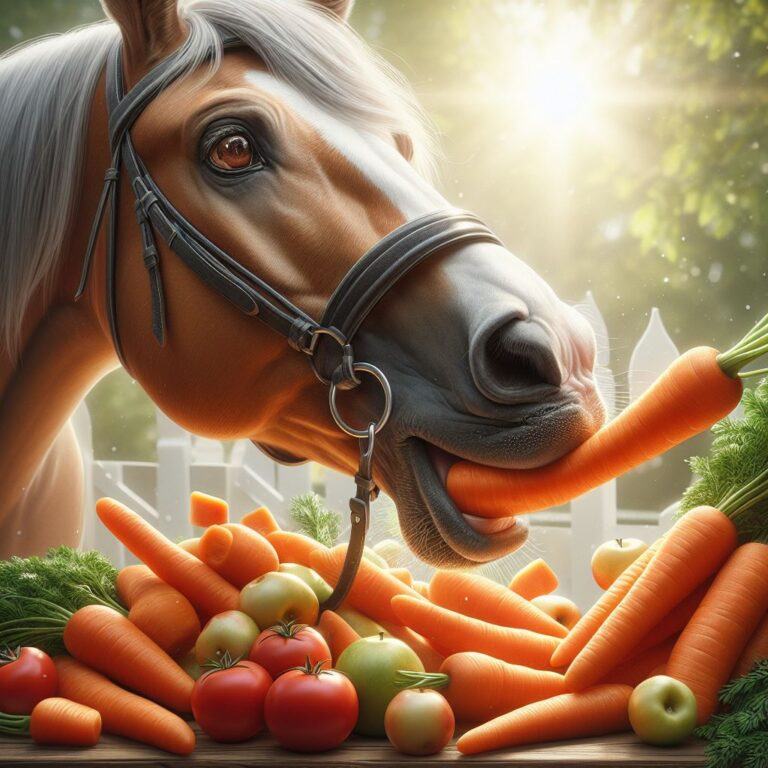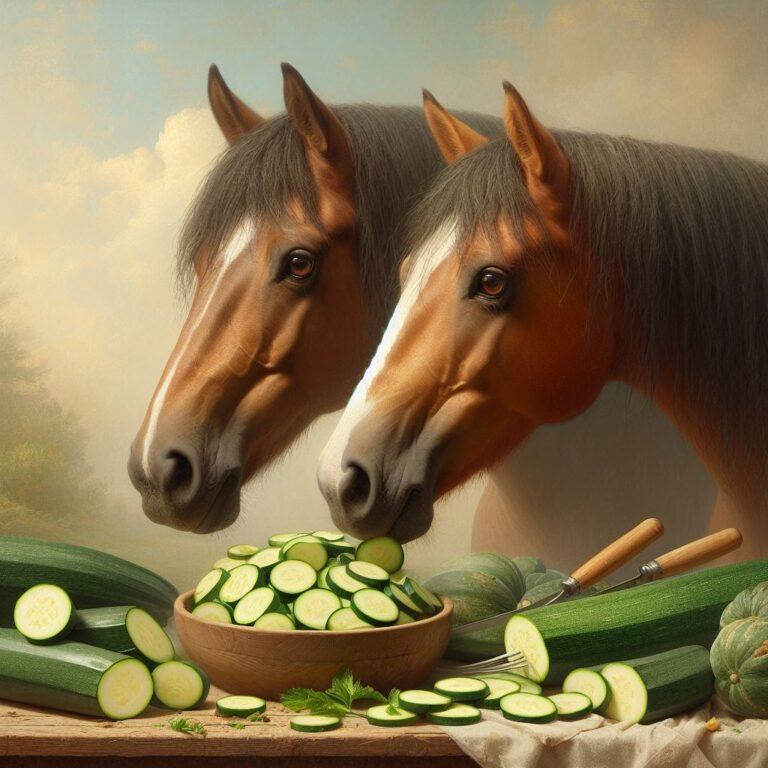Can Horses Safely Eat Garlic
Yes, horses can safely eat garlic, but it’s all about moderation. Garlic contains compounds that can offer health benefits but can be harmful in excess. Including small amounts in a horse’s diet may aid in repelling pests and promoting general well-being.
Now, why is garlic a topic of interest for horse owners? Well, garlic is renowned for its health-enhancing properties, attributed to its high levels of allicin, a compound known for its antimicrobial and antioxidant characteristics.
In the right doses, garlic can potentially bolster a horse’s immune system and act as a natural fly repellent.
However, caution is key. Large amounts of garlic can lead to Heinz body anemia in horses, a condition caused by the destruction of red blood cells.
This means you must understand the boundary between a beneficial dose and a risky one. It cannot be overstated that consulting a veterinarian for personalized advice is a crucial step before adding garlic or any new supplement to your horse’s regimen.
Understanding Garlic’s Benefits and Risks for Horses
Balanced knowledge about its benefits and risks is crucial when it comes to garlic’s role in a horse’s diet.
While some horse owners swear by garlic’s purported health advantages, scientific research on the topic offers a more balanced picture.
Garlic is rich in compounds like allicin, known for its antimicrobial properties. This leads to the belief that it could help boost the immune system and work as an internal insect repellent, which is particularly appealing during bug-heavy seasons.
However, the evidence supporting these claims varies, and what works for one horse may not be suitable for another.
On the risk side of the equation, garlic contains thiosulfates, compounds known to cause oxidative damage to red blood cells in horses.
This can eventually lead to Heinz body anemia, a condition that can be severe and even fatal. Risk levels depend on the dose and frequency of garlic intake.
If you’re considering garlic for your horse, remember that moderation is key. The safe quantity will differ based on factors such as your horse’s size, overall health, and diet.
For this reason, it’s imperative to start with a small dose and closely monitor your horse’s health.
The potential health benefits of garlic for horses make it an interesting supplement option, but these must be weighed against the risks. Always consult with a veterinarian to tailor a safe and effective feeding strategy.
Integrating Garlic Into Your Horse’s Diet
I recognize the desire to provide the best care for your horse, so when it comes to feeding garlic, caution and knowledge are vital.
Begin with SMALL QUANTITIES. Observe your horse closely for any changes in behavior or health.
Proper form is crucial, fresh garlic is often preferred, but powdered or oil-based supplements can be convenient if used correctly.
I cannot stress enough the importance of consulting your vet. They can provide guidance tailored to your horse’s specific needs, helping you avoid common mistakes like overfeeding.
Always follow their recommendations on dosage and frequency to ensure that garlic remains a benefit and not a detriment to your horse’s health.
Watch for any unwelcome reactions. If you notice signs of discomfort or illness, stop feeding garlic immediately and seek veterinary assistance.
The health of your horse should always come first, trumping any potential benefits that a supplement might offer.
Remember, a horse’s diet should primarily consist of fresh grass and hay, along with a few tasty treats such as apples, carrots, bananas, or watermelon.
With a careful approach, garlic can be a safe and beneficial addition to your horse’s diet, but the key is to prioritize their well-being at every step.



